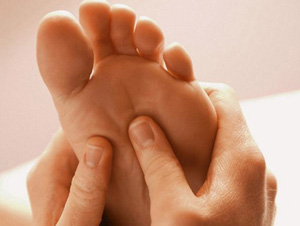
More evidence that low-calorie sweeteners are bad for your health
Studies show that artificial sweeteners can raise the risk of hypertension, metabolic syndrome, type 2 diabetes and heart disease, including stroke.

Natural Health News — Agitation in elderly patients has traditionally been managed with medication or in some cases physical restraints; but a new study suggests that a 10-minute simple foot massage may be an effective way to deal with it.
There is increasing interest in using complementary and alternative treatments to manage behavioural and psychological symptoms of dementia such as agitation, aggression and depressed mood.
In this small study which involved patients in five long-term care facilities in Brisbane, Australia, researchers sought to compare the effect of foot massage (intervention) and quiet presence (control) on agitation and mood in people with dementia.
In all 55 long-term care residents aged 74-103 years, with moderate to severe dementia and a history of agitated behaviour participated. The patients were randomised to one of two groups: a 10-min foot massage or quiet presence (control), every weekday for 3 weeks.
At the end of that period both groups experienced an increase in agitation, though the increase was greater in the quiet presence group than it was in the foot massage group. In addition those receiving the foot massage were also more alert as compared to those in the quiet presence group whose alertness declined.
The authors say that more research is needed to understand specific conditions under which massage might promote relaxation and improve mood for people with dementia.
Good for care nurses too
The study builds on a previous pilot study by the same team and provides further evidence to help assess whether foot massage is, indeed, a low cost, low risk, non-pharmacological and easily applied procedure that produces tangible positive psychological and physiological effects.
In addition, the researchers have produced previous research to show that caregivers working with people who have dementia also benefit from a 10-minute foot massage administered during their shifts.
Noting that massage has been shown to reduce stress in many different types of individuals including among nurses, the researchers found those who received massages had lower diastolic blood pressure and lower levels of anxiety than those who did not receive the treatment. The researchers described “significant differences” between the two groups’ blood pressure and anxiety measurements, and said a larger study is called for to build on the “promising” findings.

Please subscribe me to your newsletter mailing list. I have read the
privacy statement